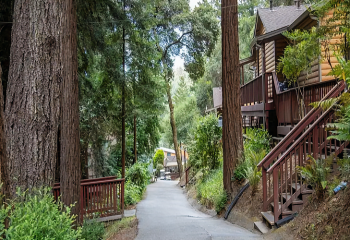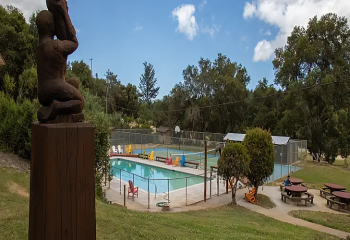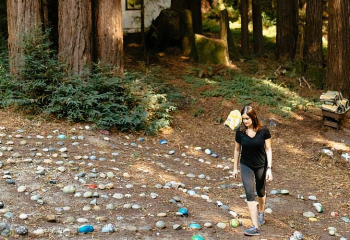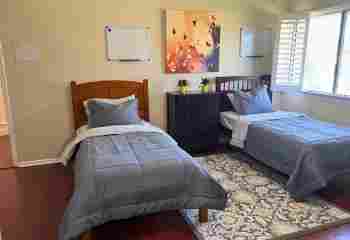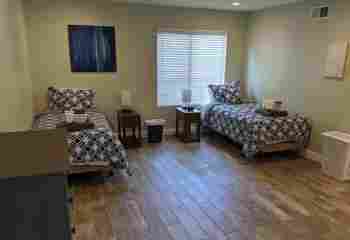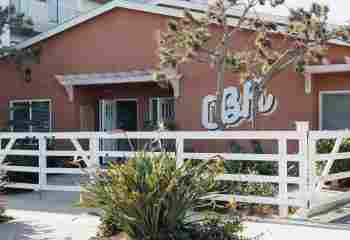More About Treatment Centers for Psychedelics
Psychedelic drugs are a group of drugs often referred to as hallucinogenic substances. They can alter your sensory perceptions, the way you think and your energy levels. They come in a variety of forms, including man-made chemical compounds like LSD or MDMA and natural substances like peyote plants or magic mushrooms. The most common forms of psychedelics are:
- LSD (also known as acid)
- Mescaline (a naturally occurring psychedelic substance found in cactus plants, most common being the peyote cactus)
- Psilocybin (psychedelic substance found in fungi)
- Ketamine (a dissociative anesthetic)
- Ecstasy (also known as MDMA)
How Do Psychedelics Work?
Psychedelics work by interacting with chemical receptors in your brain, most often impacting serotonin, dopamine and glutamate. These neurotransmitters regulate your mood, sensory perception, sleep, hunger levels, your thoughts and many other functions.
Psychedelic substances bind to these receptors and alter the typical function and communication between the neurotransmitters. Because of this, your brain is thought to be in a heightened state of flexibility when using psychedelics. This can allow for new connections between brain regions, increased creativity, introspection, change of mind and perception, and feelings of increased alertness.
The Effects of Psychedelics
The effects of psychedelics will vary greatly depending on the person. Other influencing factors include dosage, surroundings and personality of the person taking them. . General effects can consist of:
- Physical changes - Dilated pupils, change in body temperature, fast heart rate
- Spiritual effects - Mystical experiences, a renewed sense of self or ego, or a sense of spiritual insight while using
- Mood changes - Euphoria, social withdrawal, panic or even paranoia
- Altered perception - Heightened colors, intense sounds, and changes in time and space
While psychedelics create the potential for short-term positive and negative mood effects, more research is needed to determine if they create any long-term effects.
Are Psychedelics Addictive?
Researchers generally agree psychedelics are less addictive than other substances. Some, however, believe that with regular use of psychedelics, individuals can quickly develop a tolerance, creating the need to take more to experience the same effects.
Addiction to psychedelics is possible when people use them to escape their current reality or in response to stress or negative emotions.
Additionally, the context and goal of using psychedelics plays a crucial role in your dependence on them. In recent years, psychedelics have gained momentum as a helpful way to treat treatment-resistant depression, substance use and other mental illnesses in conjunction with traditional talk therapy. If you struggle with either a mental health disorder or substance use disorder and want to try psychedelic-assisted therapy, it's important to understand the risks and benefits, consult a professional and be appropriately screened before beginning psychedelic therapy.
How Do I Know If I Need Rehab For Psychedelics?
Some indicators that might suggest your need for psychedelic rehab are:
- Loss of control - If you find it challenging to stop using, despite wanting to cut back, it may indicate your need for additional help.
- Increased tolerance - Developing a tolerance that leads you to use more than you used to may indicate your need for help.
- Psychological distress- If your use of psychedelics has led to increased anxiety, depression, paranoia or in rare cases psychosis, seeking professional help is important.
- Strained family, friend or romantic relationships - If your use of psychedelics have led to increased conflict between yourself and loved ones, it could indicate the need for professional help.
If you're concerned about your use of psychedelics and their impact on your life, seek an evaluation from a healthcare provider or mental health therapist.
Questions to Ask My Provider
A healthcare provider or therapist can help you assess your situation, offer guidance and recommend appropriate levels of care for your unique needs. Some questions that may help you gain a better understanding of what you need include:
- What are the common signs and symptoms of a psychedelic addiction?
- What treatment options are available for psychedelic addiction?
- Are there support groups available for psychedelic addiction?
- Are psychedelics impacting my physical or brain health?
- What does long-term recovery involve?
Levels of Care for Psychedelic Rehab
Although there is no formal detox process for psychedelics, you may have cravings, withdrawal symptoms and mood swings that can be addressed in a rehab program. Treatment for psychedelics addiction may include a combination of:
- Inpatient: You'll live in a treatment center or hospital-like setting and have 24/7 monitoring for your safety.
- Residential: You'll live in a rehab for 28+ days and engage in treatment with a comprehensive staff and a community of peers.
- Partial hospitalization (PHP): You'll meet 5-7 times a week for a full day.
- Intensive outpatient (IOP): You'll meet 3-5x per week for several hours at a time for more intensive care.
- Outpatient (OP): You'll live at home and meet 1-2x per week with your provider and others in treatment.
If you're experiencing symptoms of depression, anxiety or paranoia, it's important to find a treatment center that specializes in dual diagnoses. These treatment centers will approach your healing comprehensively by addressing both addiction and mental health concerns at the same time.
With your motivation, a structured environment, support of others who are in recovery and the right tailored therapies for your needs, rehabs can treat psychedelic addiction. in rehab is promising. Getting treatment is a significant step towards reclaiming control over your life and achieving sobriety.

















